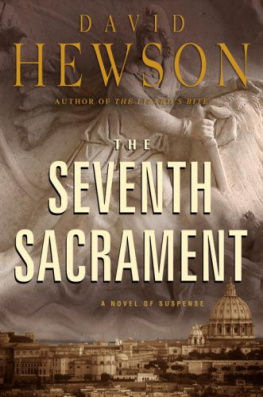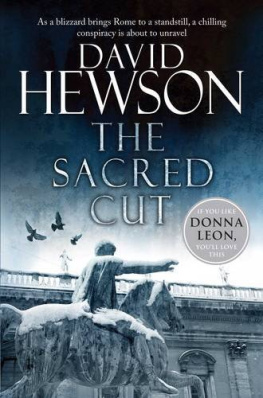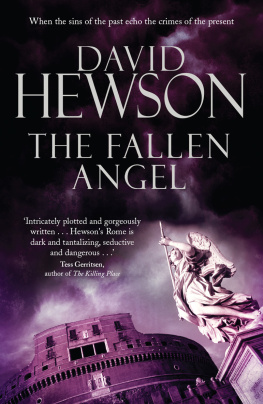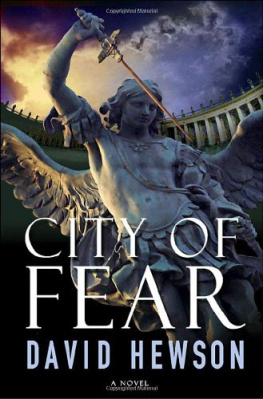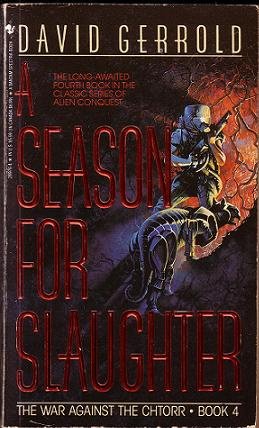David Hewson - A Season for the Dead
Here you can read online David Hewson - A Season for the Dead full text of the book (entire story) in english for free. Download pdf and epub, get meaning, cover and reviews about this ebook. genre: History. Description of the work, (preface) as well as reviews are available. Best literature library LitArk.com created for fans of good reading and offers a wide selection of genres:
Romance novel
Science fiction
Adventure
Detective
Science
History
Home and family
Prose
Art
Politics
Computer
Non-fiction
Religion
Business
Children
Humor
Choose a favorite category and find really read worthwhile books. Enjoy immersion in the world of imagination, feel the emotions of the characters or learn something new for yourself, make an fascinating discovery.

- Book:A Season for the Dead
- Author:
- Genre:
- Rating:3 / 5
- Favourites:Add to favourites
- Your mark:
- 60
- 1
- 2
- 3
- 4
- 5
A Season for the Dead: summary, description and annotation
We offer to read an annotation, description, summary or preface (depends on what the author of the book "A Season for the Dead" wrote himself). If you haven't found the necessary information about the book — write in the comments, we will try to find it.
A Season for the Dead — read online for free the complete book (whole text) full work
Below is the text of the book, divided by pages. System saving the place of the last page read, allows you to conveniently read the book "A Season for the Dead" online for free, without having to search again every time where you left off. Put a bookmark, and you can go to the page where you finished reading at any time.
Font size:
Interval:
Bookmark:
A Season for the Dead
David Hewson
One
The heat was palpable, alive. Sara Farnese sat at her desk in the Reading Room of the Vatican Library and stared out of the window, out into the small rectangular courtyard, struggling to concentrate.
The fierce August afternoon placed a rippling, distorting mirage across her view. In the unreal haze, the grass was a yellow, arid mirror of the relentless sun. It was now two oclock. Within an hour the temperature beyond the glass would hit one hundred four degrees. She should have left like everyone else. Rome in August was an empty furnace echoing to the whispers of desiccated ghosts.
That morning, the university corridors on the other side of the city rang to her lone footsteps. It was one reason she decided to flee elsewhere. Half the shops and the restaurants were closed. The only life was in the parks and the museums, where stray groups of sweating tourists tried to find some meager shade.
This was the worst of the summer. Yet she had decided to stay. She knew why and she wondered whether she were a fool. Hugh Fairchild was visiting from London. Handsome Hugh, clever Hugh, a man who could rattle off from memory the names of every early Christian Codex lodged in the museums of Europe, and had probably read them too.
If the plane was on time he would have arrived at Fiumicino at ten that morning and, by now, have checked into his suite at the Inghilterra. It was too early for him to stay with her, she knew that, and pushed from her head the idea that there could be other names in his address book, other candidates for his bed. Hugh was an intensely busy man. He would be in Rome for five days, of which two nights alone were hers, then move on to a lawyers conference in Istanbul.
It was, she thought, possible that he had other lovers. No, probable. He lived in London, after all.
He had abandoned academia to become a successful career civil servant with the EU. Now he seemed to spend one week out of every four on the road, to Rome, to New York, to Tokyo. They met, at most, once a month. He was thirty-five, handsome in a way that was almost too perfect. He had a long, muscular, tanned body, a warm, aristocratic English face, always ready to break into a smile, and a wayward head of blond hair. It was unthinkable that he did not sleep with other women, perhaps at first meeting.
That was, she recalled with a slight sensation of guilt, what had happened to her at the convention on the preservation of historical artifacts in Amsterdam four months before. Nor did it concern her. They were both single adults. He was meticulously safe in his lovemaking.
Hugh Fairchild was a most organized man, one who entered her life and left it at irregular intervals which were to their mutual satisfaction. That night they would eat in her apartment close to the Vatican. They would cross the bridge by the Castel SantAngelo, walk the streets of the centro storico and take coffee somewhere. Then they would return to her home around midnight, where he would stay until the morning, when meetings would occupy him for the next two days.
This was, she thought, an ample provision of intellectual activity, pleasant company and physical fulfillment. Enough to keep her happy. Enough, a stray thought said, to quell the doubts.
She tried to focus on the priceless manuscript sitting on the mahogany desk by the window. This was a yellow volume quite unlike those Sara Farnese normally examined in the Vatican Reading Room: a tenth-century copy of De Re Coquinaria, the famed imperial Roman cookery book by Apicius from the first century A.D.
She would make him a true Roman meal: isicia omentata, small beef fritters with pine kernels, pullus fiusilis, chicken stuffed with herbed dough, and tiropatinam, a souffl with honey. She would explain that they were eating in because it was August. All the best restaurants were closed. This was not an attempt to change the status of their relationship. It was purely practical and, furthermore, she enjoyed cooking. He would understand or, at the very least, not object.
Apicius? asked a voice from behind, so unexpected it made her shudder.
She turned to see Guido Fratelli smiling at her with his customary doggedness. She tried to return the friendly look though she was not pleased to see him. The Swiss Guard always headed for her whenever she visited. Guido knewor had learnedenough of her work in the library to be able to strike up a conversation. He was about her own age, running a little to fat, and liked the blue, semimedieval uniform and the black leather gun holster a little too much.
As a quasicop he had no power beyond the Vatican, and only the quieter parts of that. The Rome police retained charge of St. Peters Square, which was, in truth, the only place the law was usually needed. And they were a different breed, nothing like this quiet, somewhat timorous individual.
Guido Fratelli would not last a day trying to hustle the drunks and addicts around the Termini Station.
I didnt hear you come in, Sara said, hoping he took this as a faint reproach. The Reading Room was empty apart from her. She appreciated the quiet; she did not want it broken by conversation.
Sorry. He patted the gun on his belt, an unconscious and annoying gesture. Were trained to be silent as a mouse. You never know.
Of course, she replied. If Sara recalled correctly, there had been three murders in the Vatican in the course of almost two hundred years: in 1988, when the incoming commander of the Swiss Guard and his wife were shot dead by a guard corporal harboring a grudge, and in 1848, when the Popes prime minister was assassinated by a political opponent.
With the city force taking care of the crowds in the square, the most Guido Fratelli had to worry about was an ambitious burglar. Not your usual stuff? he asked.
Ive wide-ranging interests.
Me too. He glanced at the page. The volume had come in its customary box, with the name in big, black letters on the front, which was how he knew what she was reading. Guido was always hunting for conversational footholds, however tenuous. Perhaps he thought that was a kind of detective work. Im learning Greek you know.
This is Latin. Look at the script. His face fell.
Oh. I thought it was Greek you looked at. Normally.
Normally. She could see the distress on his face and couldnt help being amused.
He was thinking: I have to try to learn both? Maybe you could tell me how Im doing sometime?
She tapped the notebook computer onto which she had transcribed half the recipes she wanted. Sometime. But not now, Guido. Im busy.
The desk was at right angles to the window. She looked away from him, into the garden again, seeing his tall, dark form in the long window.
Guido was not going to give up easily. Okay, he said to her reflection in the glass, then walked off, back down to the entrance. She heard laughter through the floor from the long gallery above. The tourists were in, those who had sufficient influence to win a ticket to these private quarters. Did they understand how lucky they were? Over the last few years, both as part of her role as a lecturer in early Christianity at the university and for purely personal pleasure, she had spent more and more time in the library, luxuriating in the astonishing richness of its collection. She had touched drawings and poems executed in Michelangelos own hand. She had read Henry VIIIs love letters to Anne Boleyn and a copy of the same kings Assertio Septem Sacramentorum, signed by the monarch, which had won Henry the title Defender of the Faith and still failed to keep him in the Church.
From a professional point of view it was the early worksthe priceless codices and incunabulawhich were the focus of her attention. Even so, she was unable to prevent herself stealing a glance at the material from the Middle Ages on.
Next pageFont size:
Interval:
Bookmark:
Similar books «A Season for the Dead»
Look at similar books to A Season for the Dead. We have selected literature similar in name and meaning in the hope of providing readers with more options to find new, interesting, not yet read works.
Discussion, reviews of the book A Season for the Dead and just readers' own opinions. Leave your comments, write what you think about the work, its meaning or the main characters. Specify what exactly you liked and what you didn't like, and why you think so.

